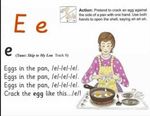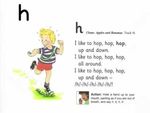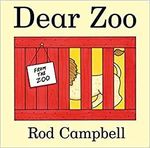Sharples Primary School - NURSERY LEARNING IDEAS PACK - Sharples Primary ...
←
→
Page content transcription
If your browser does not render page correctly, please read the page content below
Sharples Primary School
NURSERY LEARNING
IDEAS PACK
SUMMER TERM
WEEK 5 11.05.2020
CONTENTS:
• DEAR ZOO IDEAS
• M AT H S AC T I V I T I E S
• LETTERS AND SOUNDS
AC T I V I T Y I D E A S
Please share your child’s learning via Evidence Me, Class Dojo • SOUNDS OF THE WEEK
or by emailing nursery@sharples-pri.bolton.sch.ukPersonal, Social and Emotional Development Communication and Language Physical Development
• Talk about a time when you may have visited the zoo. • Listen to Miss Hamer read the • Use playdough with small world animals and sticks.
What animals did you see? Re-tell the events of the story Dear Zoo. Talk about the Look at the footprints that the different animals have
day. different animals. What words when they are pressed in the playdough. Can you
• Discuss the original habitats of the animals in the zoo. If can you use to describe them? make homes for the animals using the sticks and
you feel appropriate, debate together about whether • Hide small world animals or playdough?
animals should be in a zoo. pictures in boxes. Describe the • Try some animal yoga using Cosmic Kids Yoga for Wild
• Talk about the conservation of animals. animal to your child without Kids. (link here).
telling them what it is. Can they
Mathematical Development guess the animal? Literacy
• Collect some small world animals or draw some pictures • Learn the names of some more • Draw one of the animals from the story and label its
of some animals. Line them up and count how many you uncommon animals. different features.
have. Can you write the numeral? • Create your own page for the Dear Zoo story. What
• Find some different sized boxes. Investigate what will other animal could the zoo have sent?
fit into the boxes. Dear Zoo • Use the animal pictures (see download) or draw some
• Using small world animals or pictures, sort the animals of your own to make puppets. Act out the story.
according to their attributes e.g. stripes, feathers, fur. • Alphabet zoo. Think of different animals for every
• Play matching pairs using the animal pictures. letter of the alphabet.
Understanding the World Expressive Art and Design
• Create your own zoo. You could draw a map or use • Use paints or collage to create a zoo animal. Look
small world animals to make it. closely at the animal patterns and think about how you
• Visit the Virtual Zoo at Chester Zoo. will create texture.
https://www.chesterzoo.org/virtual-zoo-2/ What • Make binoculars out of cardboard tubes and pretend
animals can you see? Where do they live? What do to go on an animal safari.
they eat? • Create a zoo or jungle small world environment to play
• Do you have any pets? Create a poster explaining how with your animals in.
to look after them. • Use instruments to create animal sounds.Measures: Weight Activity Ideas Weight walk Baking You will need a collection of soft toys and some carrier Use scales to measure out ingredients to bake some cakes, bags. Encourage your child to choose two soft toys from the biscuits or another yummy treat! Ask your child to help you collection. Put one in each carrier bag and go for a walk to use the measuring scales. Talk about how much of each around the room, carrying one bag in each hand. At the ingredient you need. end of the walk, ask your child which is the heaviest and which is the lightest toy they have been carrying. Try this Hanger Balance with different soft toys until you find the heaviest of them Make a hanger balance like the pictures below and all. Then find the lightest. investigate weight by putting different items in each side.
Letters and Sounds Activities
Environmental Sounds Voice Sounds
Describe and find it Mouth movements
Set up a model zoo. Describe one of the animals but do not tell the Explore different mouth movements with children – blowing, sucking, tongue
children its name. Say, for example: This animal has a long neck, four legs stretching and wiggling. Practising these movements regularly to music can
and a tail. Ask them to say which animal it is. Ask them to make the noise be fun and helps children with their articulation.
the animal might make. When they are familiar with the game let
individual children take the part of the adult and describe the animal for
the others to name. This activity can be repeated with other sets of objects Give me a sound
such as farm animals, toy sets based on transport (e.g. aeroplane, car, After making a sound with your voice, talk about the ‘features’ of the sound
train, bus, boat) and musical instruments. It can be made more challenging with the children – was it a long sound, a loud sound, did it change from high
by introducing sets of random objects to describe and name. to low, etc.? Introduce vocabulary gradually with examples and visual cues
(e.g. symbols and pictures) if needed. Then introduce new vocabulary to the
children to help them describe the sound (e.g. to talk about high and low
Teddy is lost in the jungle pitch).
One child (the rescuer) is taken aside while a teddy bear is hidden
somewhere in the room. Tell the other children they are going to guide the
rescuer to the teddy by singing louder as the rescuer gets closer to, or Animal noises
quietly as the rescuer moves further away from the teddy. Alternatively Provide simple animal masks, and tails if possible, to encourage the children
lead the children in singing a familiar song, rhyme or jingle, speeding up to dramatise animal movements and sounds.
and slowing down to guide the rescuer.Sounds of the Week
Here are this weeks letter sounds and the Jolly phonics actions and songs. Please continue to sing and
practise the ones from previous weeks in addition to these.
Watch the songs here https://www.youtube.com/watch?v=rlLz3Vh2-6kYou can also read

























































